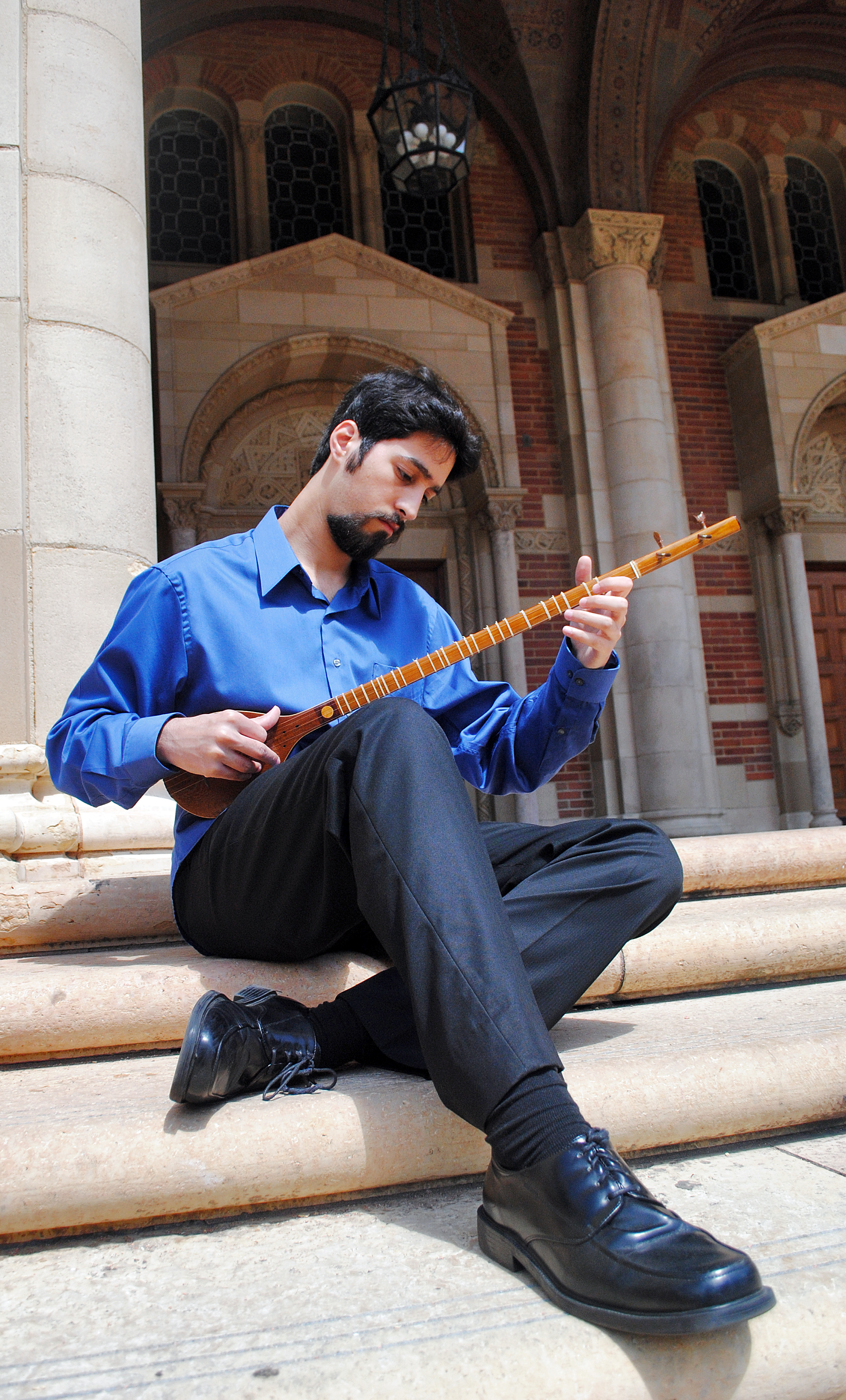Emad Borjian may not be a natural-born U.S. citizen, but playing the setar came naturally to the fourth-year music composition student.
Growing up in Iran, Borjian first turned to the instrument at the age of 14, when the most interesting exhibit he came across in the cultural center Farhangsaraye Daneshjoo, formerly Farhangsaraye Shafagh, was actually a man sitting in the corner playing setar.
Inspired by the man’s heartfelt playing, Borjian immersed himself in the instrument despite his father’s doubts about his commitment after Borjian gave up playing the Tombak drum.
Practicing eight to nine hours per day, Borjian said he made more progress in one year than most of his peers made in four.
Despite his heavy course load as a math and physics student in Tehran, Iran, Borjian kept up his setar playing.
While his brothers pursue more traditional Iranian careers in chemical and civil engineering, Borjian takes sound engineering classes.
“The setar has really shaped my personality and character and changed the path I was taking in life,” Borjian said.
Borjian moved to the United States for classical training at the College of Marin in Northern California. Like the setar, Borjian said English came rather naturally to him. Eventually he looked toward UCLA for the opportunities, diversity and connections it has to offer.
“It was an adventure to transfer to a big school like UCLA,” Borjian said. “It showed me that if I try hard and kept going, I can accomplish something.”
The dynamic musical environment of Los Angeles itself was a major attraction to Borjian, as well as the large Persian music community; he studies with fellow Iranian-born master Fariborz Azizi. Borjian said playing a Persian instrument reinforces his Persian identity even in the United States and playing it comes naturally to him.
“The learning process has been very natural. If I have an obstacle, I’ll give it some time, I’ll work on it, I won’t fuss over it too much ““ it will resolve by itself,” Borjian said. “I just think to myself “˜Why shouldn’t I be able to do this?’ and it will happen.”
Borjian said he prefers the naturalness of acoustic music with limited technological interferences and thinks it will continue to be around for a while.
“Despite all of the technological advancements since the Industrial Revolution, we still listen to pre-Industrial Revolution composers,” Borjian said. “It is their music that continues to pack auditoriums.”
